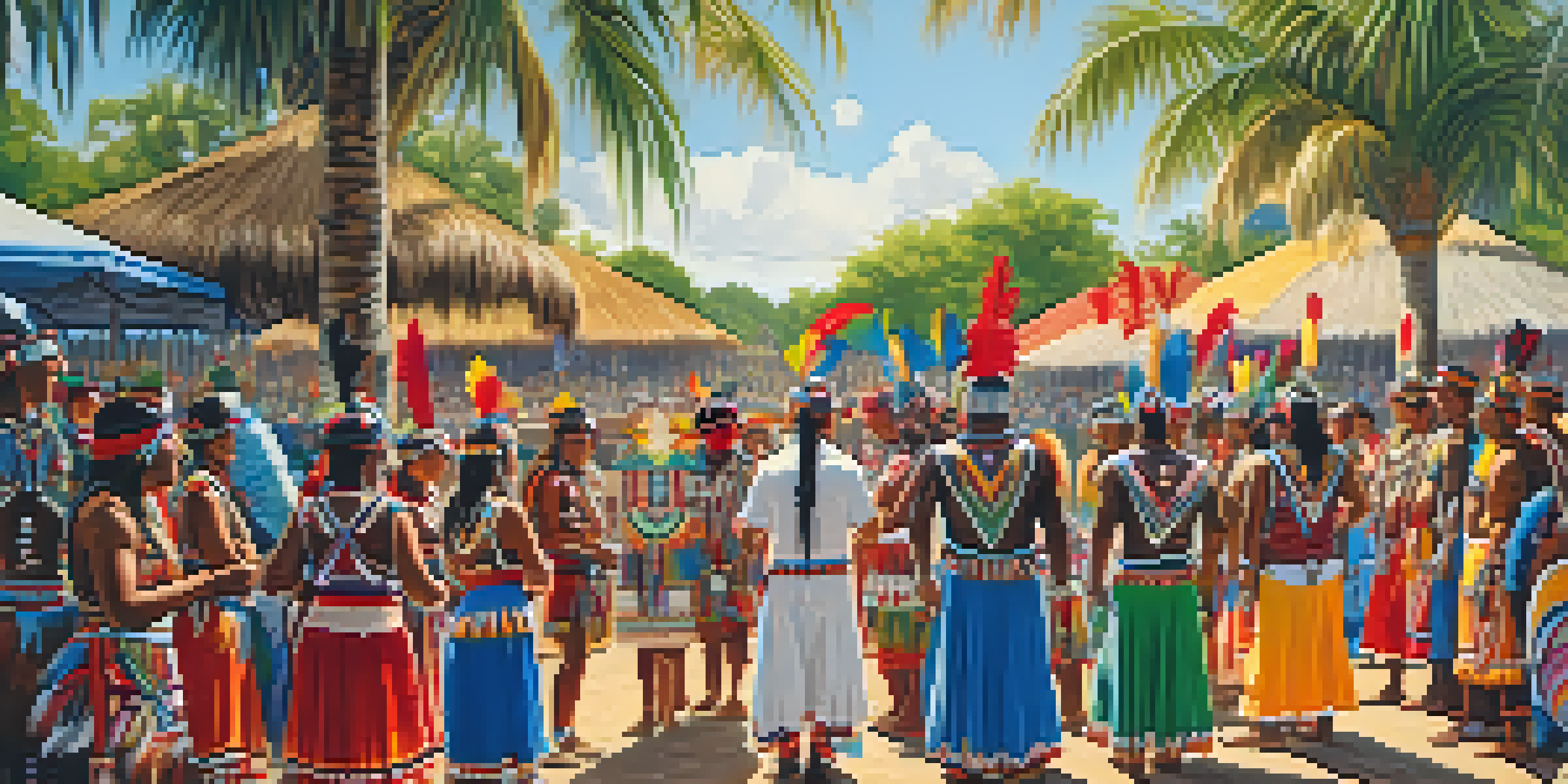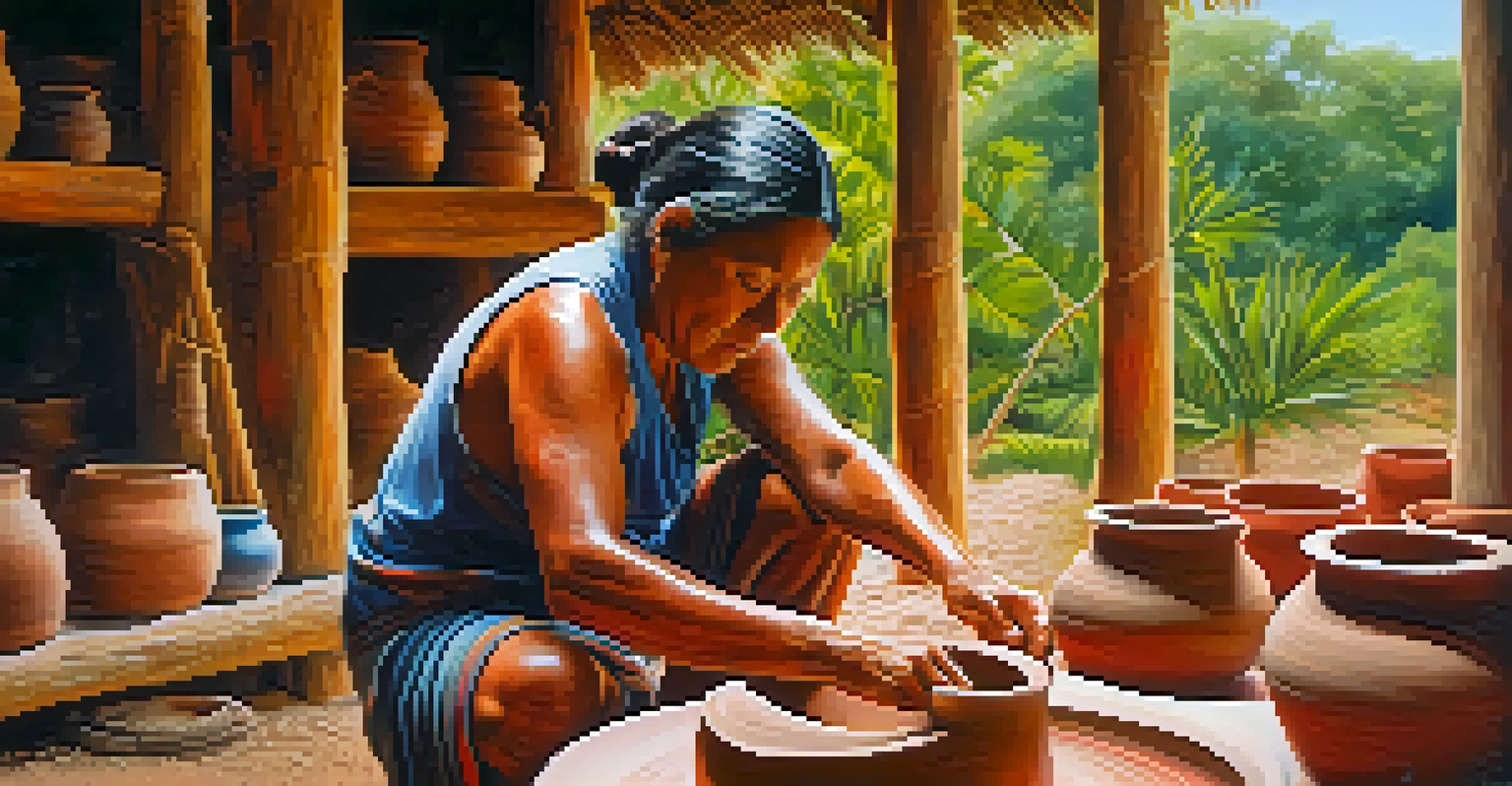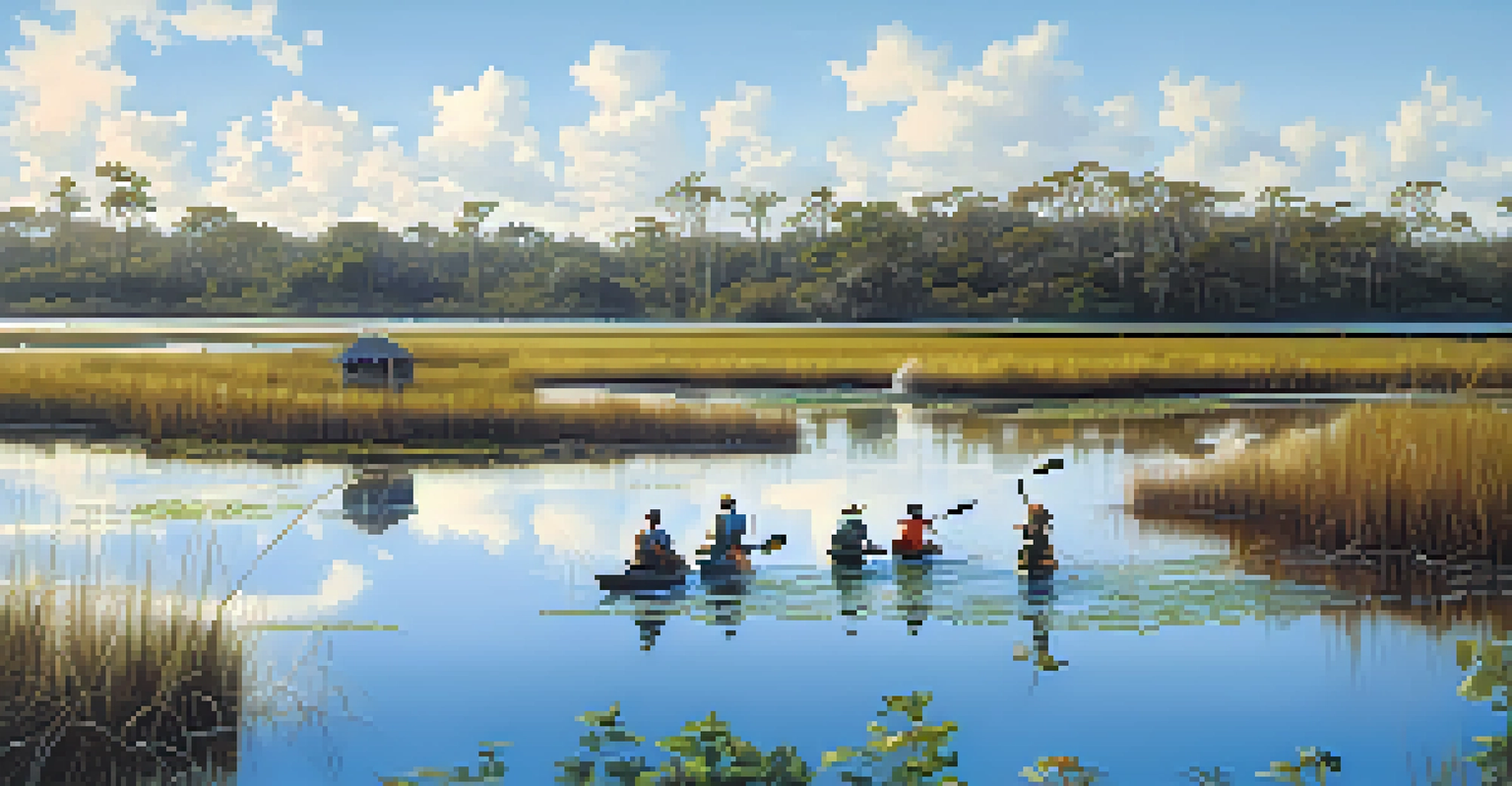Indigenous Cultures and Their Legacy in Florida Today

Understanding Florida's Indigenous Heritage
Florida's Indigenous cultures have a rich tapestry woven from thousands of years of history. The state is home to various tribes, including the Seminole and Miccosukee, who have shaped its cultural landscape. This heritage is not just a thing of the past; it influences contemporary practices and beliefs among these communities.
The preservation of Indigenous languages is not just about words; it is about the survival of our entire culture.
These tribes have maintained their traditions despite facing numerous challenges over the centuries. From their unique languages to their traditional arts, the essence of their cultures thrives today. Understanding this heritage is crucial for appreciating Florida's diverse cultural identity.
Moreover, the impact of Indigenous cultures extends beyond their communities, influencing Florida's festivals, art, and even cuisine. For instance, events like the annual Seminole Tribal Fair celebrate their history and traditions, inviting everyone to share in this vibrant legacy.
The Role of Language in Indigenous Cultures
Language is a vital part of any culture, and for many Indigenous tribes in Florida, it's a key to preserving their identity. The Seminole and Miccosukee languages, while endangered, are being revitalized through educational programs and community efforts. This revival not only strengthens cultural ties but also fosters pride among younger generations.

Additionally, languages carry stories and traditions that have been passed down for generations. Through storytelling, tribal members convey their history, beliefs, and values, which are integral to their way of life. The effort to teach these languages highlights the importance of oral history in maintaining cultural continuity.
Rich Indigenous Heritage in Florida
Florida's Indigenous cultures, including the Seminole and Miccosukee tribes, have a vibrant history that continues to influence contemporary practices and beliefs.
As more people engage with Indigenous languages, there’s a growing recognition of their significance in Florida's overall cultural narrative. This movement encourages respect for linguistic diversity and promotes a deeper understanding of the rich histories embedded in these languages.
Traditional Arts and Crafts of Indigenous Communities
Art serves as a powerful expression of culture, and Indigenous communities in Florida are known for their rich artistic traditions. From intricate beadwork to vibrant pottery, these crafts often reflect the deep connection to nature and spirituality. Artists use their work to tell stories, express emotions, and pass down traditions.
Indigenous peoples have always been stewards of the land. We understand that caring for the environment is essential for our survival.
Many Indigenous artisans participate in local markets and festivals, offering visitors a chance to appreciate their craftsmanship. These events not only showcase their talents but also create an opportunity for cultural exchange. Engaging with these artisans fosters a greater appreciation for the stories and meanings behind their work.
Moreover, the resurgence of interest in traditional arts helps to strengthen economic opportunities within Indigenous communities. By promoting and selling their crafts, they can preserve their cultural legacy while supporting their families and communities.
Indigenous Environmental Stewardship in Florida
Indigenous cultures have long been stewards of the land, practicing sustainable methods of living that respect the environment. For example, the Seminole and Miccosukee tribes have used traditional ecological knowledge to manage natural resources effectively. This approach not only benefits their communities but also contributes to the broader ecological health of Florida.
Today, these tribes are increasingly involved in environmental conservation efforts. They are advocating for the protection of waterways, wetlands, and wildlife habitats that are crucial to their cultural identity. Their practices offer valuable insights into sustainable living that can benefit all Floridians.
Language as Cultural Identity
The revitalization of Indigenous languages in Florida is crucial for preserving cultural identity and passing down traditions to younger generations.
Incorporating Indigenous knowledge into contemporary environmental policies can lead to more effective conservation strategies. The collaboration between Indigenous tribes and local governments highlights the importance of diverse perspectives in tackling environmental challenges.
The Impact of Tourism on Indigenous Cultures
Tourism plays a significant role in Florida's economy, and Indigenous communities are finding ways to participate while preserving their cultures. Eco-tourism and cultural tourism offer visitors the chance to learn about Indigenous history, traditions, and lifestyles. However, it’s essential that this engagement is respectful and authentic.
Many tribes are developing programs that educate tourists on their heritage, ensuring that visitors leave with a deeper understanding of their cultures. This includes guided tours, workshops, and storytelling sessions that highlight their historical significance and contemporary life.
While tourism can provide economic benefits, it also poses challenges. It requires a delicate balance between sharing their culture and protecting it from commercialization. Indigenous communities are working hard to navigate these complexities, ensuring their legacy is honored.
Modern Challenges Facing Indigenous Communities
Despite their resilience, Indigenous communities in Florida face numerous challenges today. Issues such as land rights, economic disparity, and cultural preservation continue to impact their lives. These challenges are compounded by a lack of representation in political and social spheres, which can hinder their efforts to advocate for their needs.
Access to education and healthcare is another pressing concern. Many Indigenous youth struggle to receive a quality education that respects and incorporates their cultural backgrounds. Improving these systems is essential for empowering future generations to thrive.
Tourism's Impact on Indigenous Culture
Indigenous communities are leveraging tourism to share their heritage while striving to maintain authenticity and protect their cultures from commercialization.
Moreover, climate change poses a significant threat to their lands and resources. Indigenous communities are on the front lines of these environmental changes, making their voices crucial in discussions about adaptation and resilience strategies.
Celebrating Indigenous Cultures in Florida Today
In recent years, there has been a growing movement to celebrate and recognize Indigenous cultures in Florida. Events like the annual Pow Wow and various cultural festivals highlight their vibrant traditions and contributions to the state's identity. These celebrations provide a platform for Indigenous voices and foster community engagement.
Art exhibitions, cultural workshops, and educational programs are also becoming more prevalent, allowing people of all backgrounds to connect with Indigenous cultures. These initiatives not only promote understanding but also help to dismantle stereotypes and misconceptions.

As awareness continues to grow, so does the opportunity for collaboration and allyship. By supporting Indigenous-led initiatives and respecting their cultural practices, we can all contribute to a more inclusive and equitable society.